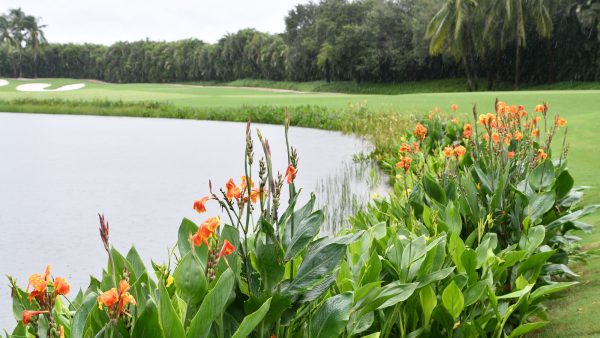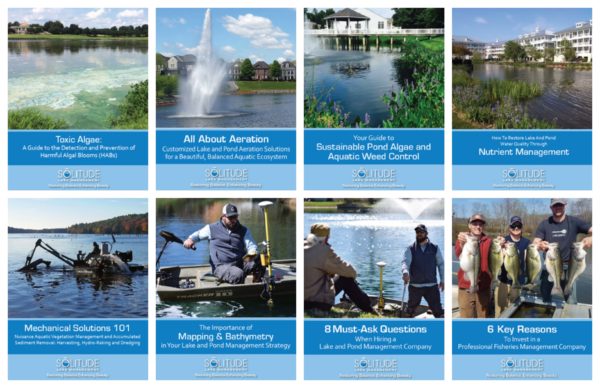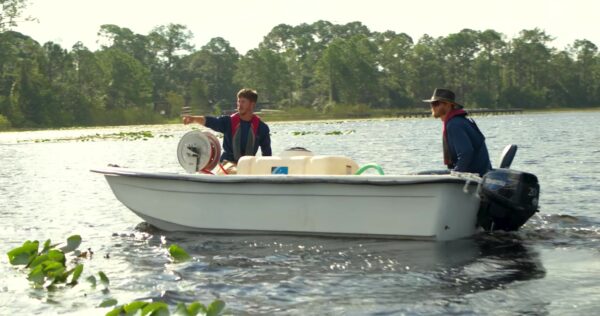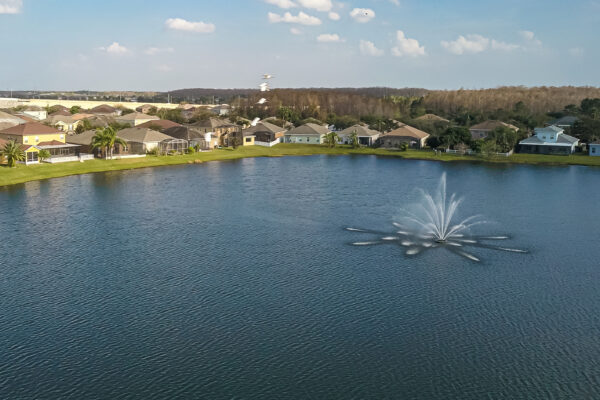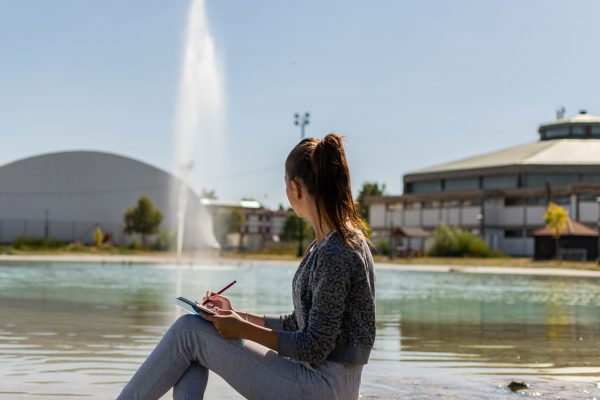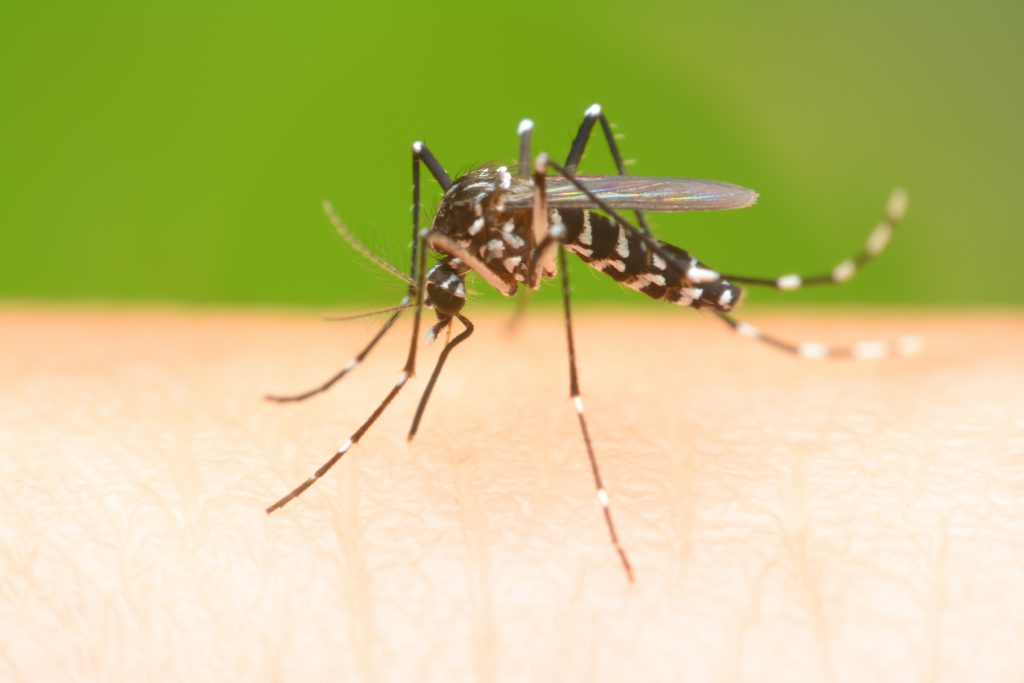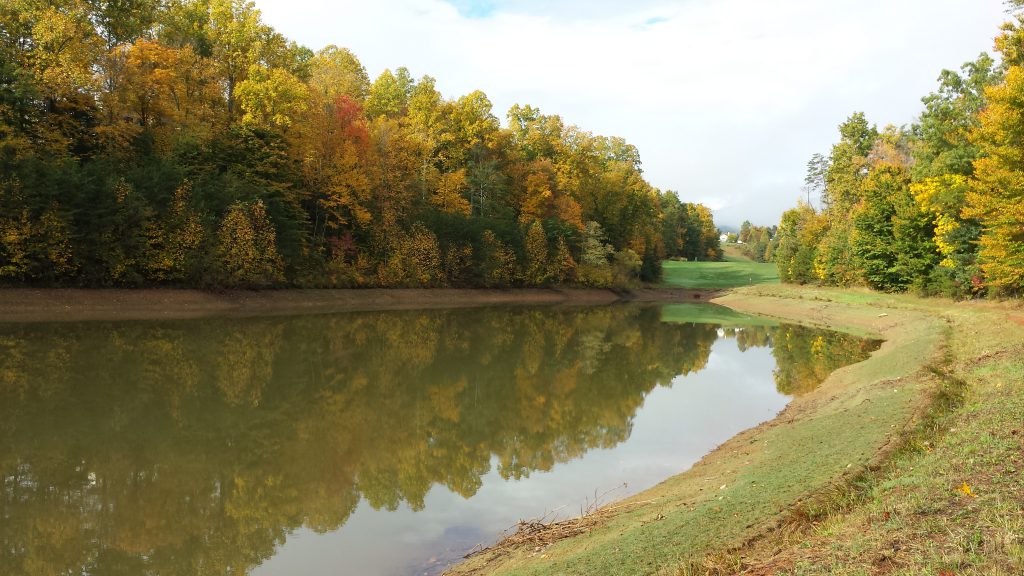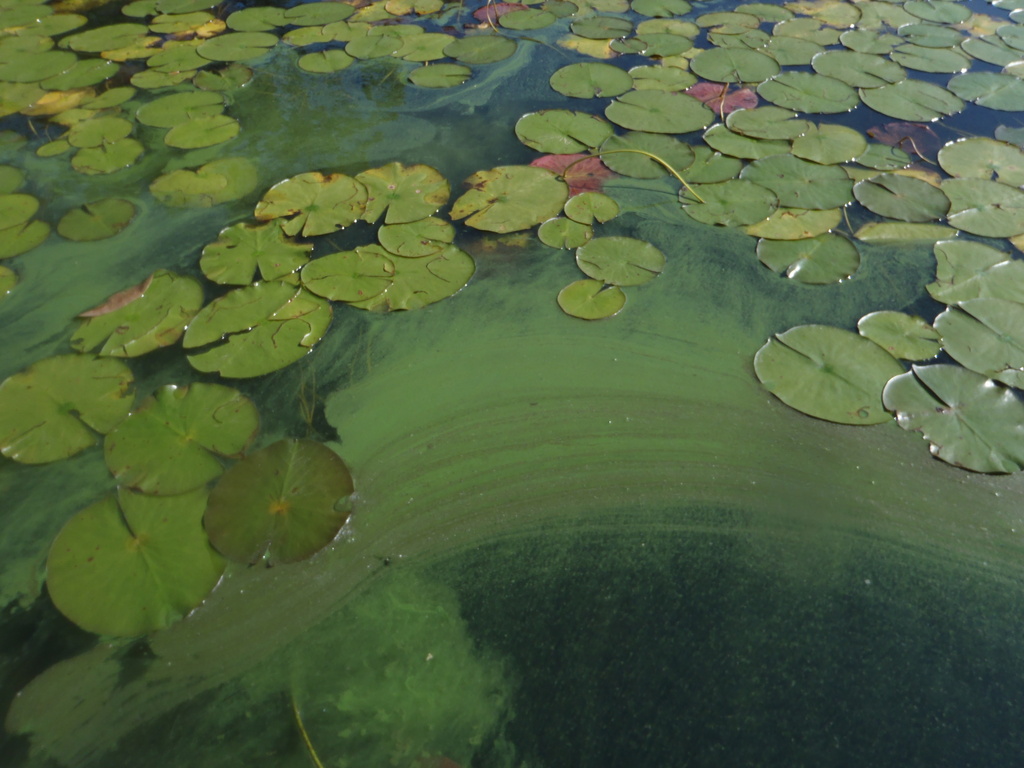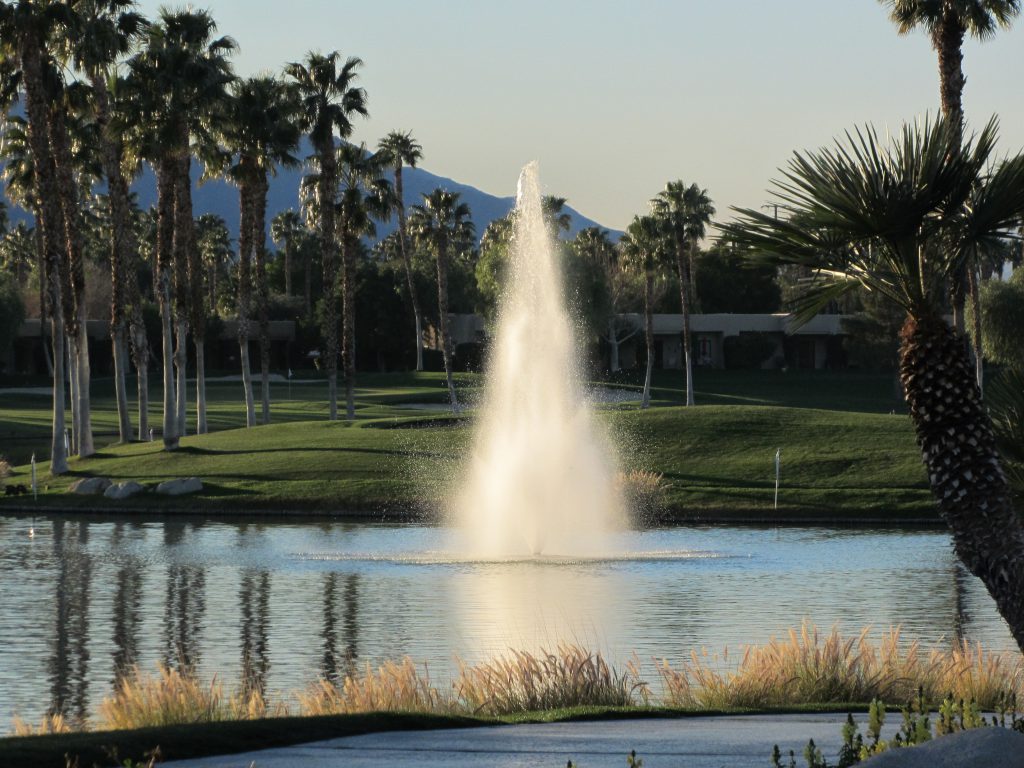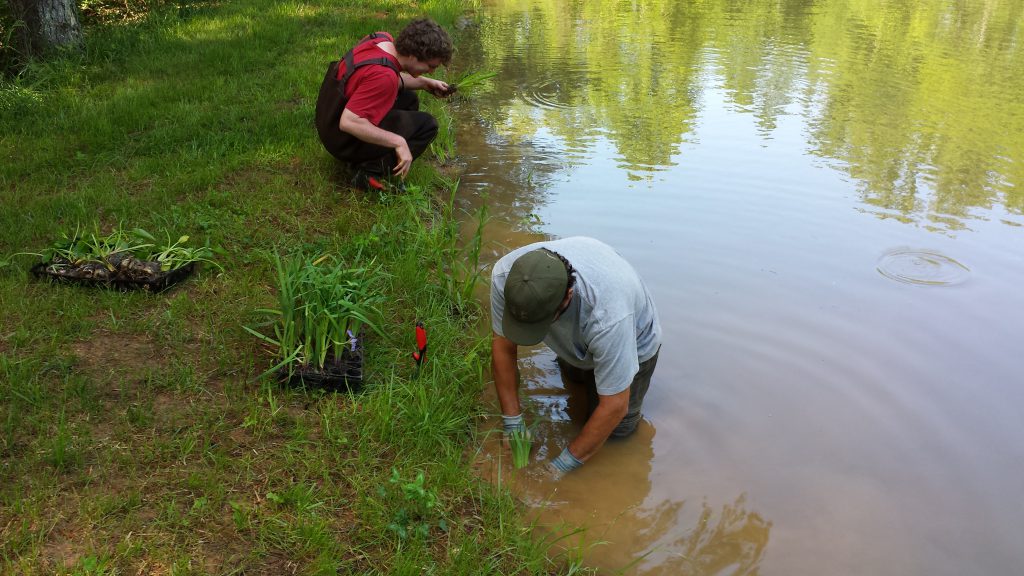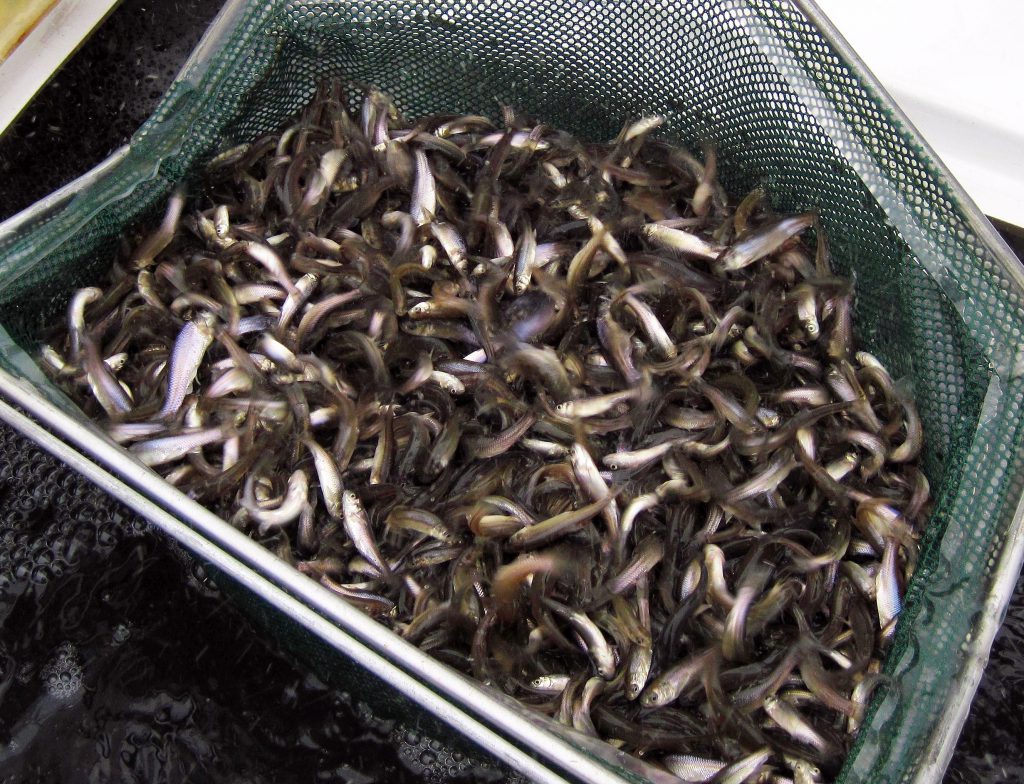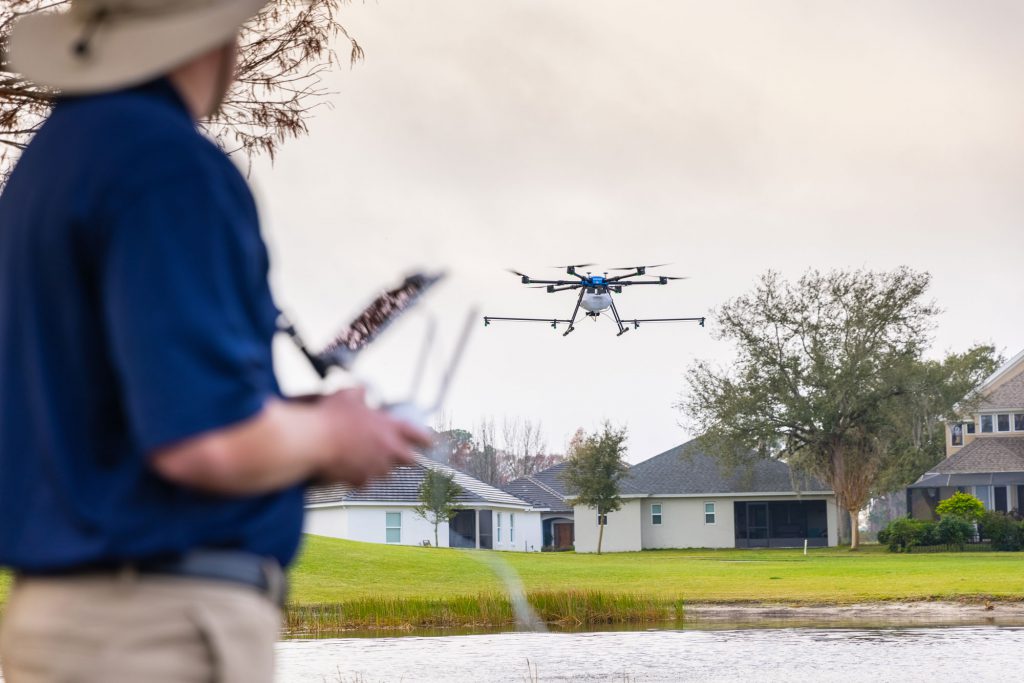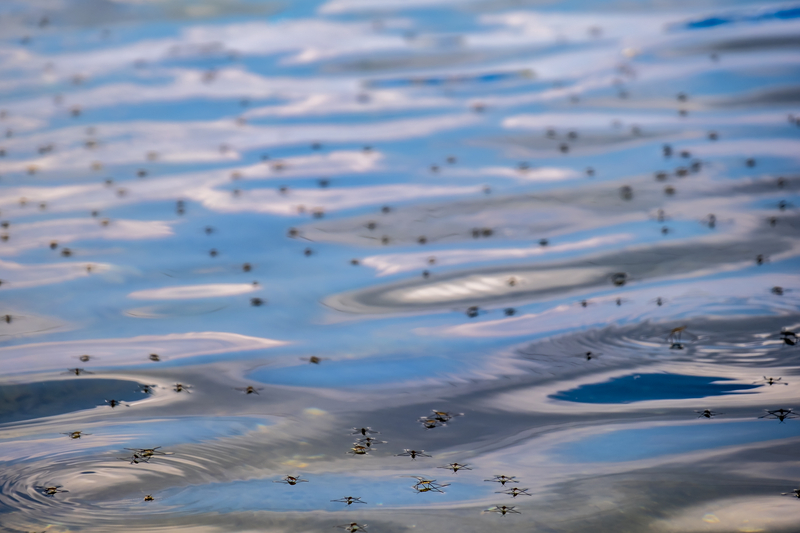
Properly Controlling Mosquitoes Near Lakes & Ponds in Florida
The pleasant spring and summer days are often the best time for people to enjoy the lakes and ponds in their communities. The fish are active, ducks and ducklings are swimming, the plants are blooming, and the insects are buzzing. Wait, what?
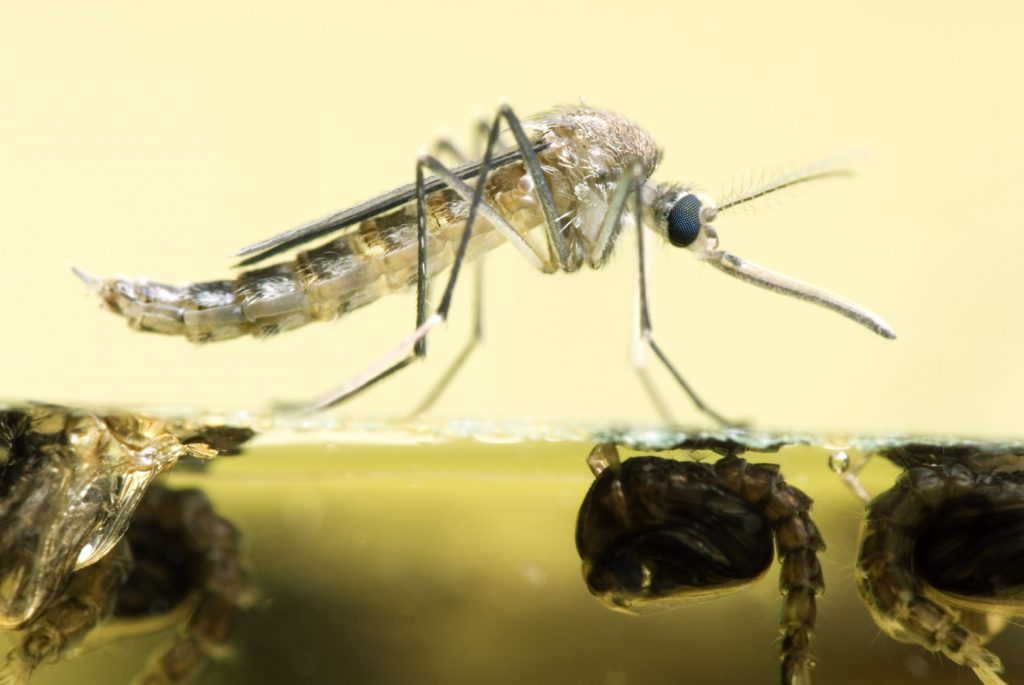
Some insects may be harmlessly buzzing, but the mosquitoes are likely biting. Lakes and ponds are breeding grounds for mosquitoes, which can be an issue for those who live or recreate near lakes and ponds. Not only can mosquitoes leave an itchy bite and spread dangerous diseases, but they can also cause water clarity and quality issues if uncontrolled.
It’s bad enough that their eggs hatch into larvae and turn into mosquitoes, but the waste matter left behind by these hatching eggs can build up in ponds and contribute to more sludge and smelly odors as well as an increase in harmful substances such as nitrites and ammonia.
Are Mosquitoes Harmful to Pond Fish and Animals?
In general, mosquitoes are not harmful to fish unless they affect the water quality of the lake or pond. For instance, mosquitoes can carry bacteria, which may get into ponds and cause issues with the fish that live there. As their eggs hatch and decompose in the lake or pond, it can cause waste to build up and affect the water quality.
Conversely, mosquitoes can pass deadly diseases to many animals and pets. Heartworms, for instance, is a deadly disease that mosquitoes pass to dogs and cats.
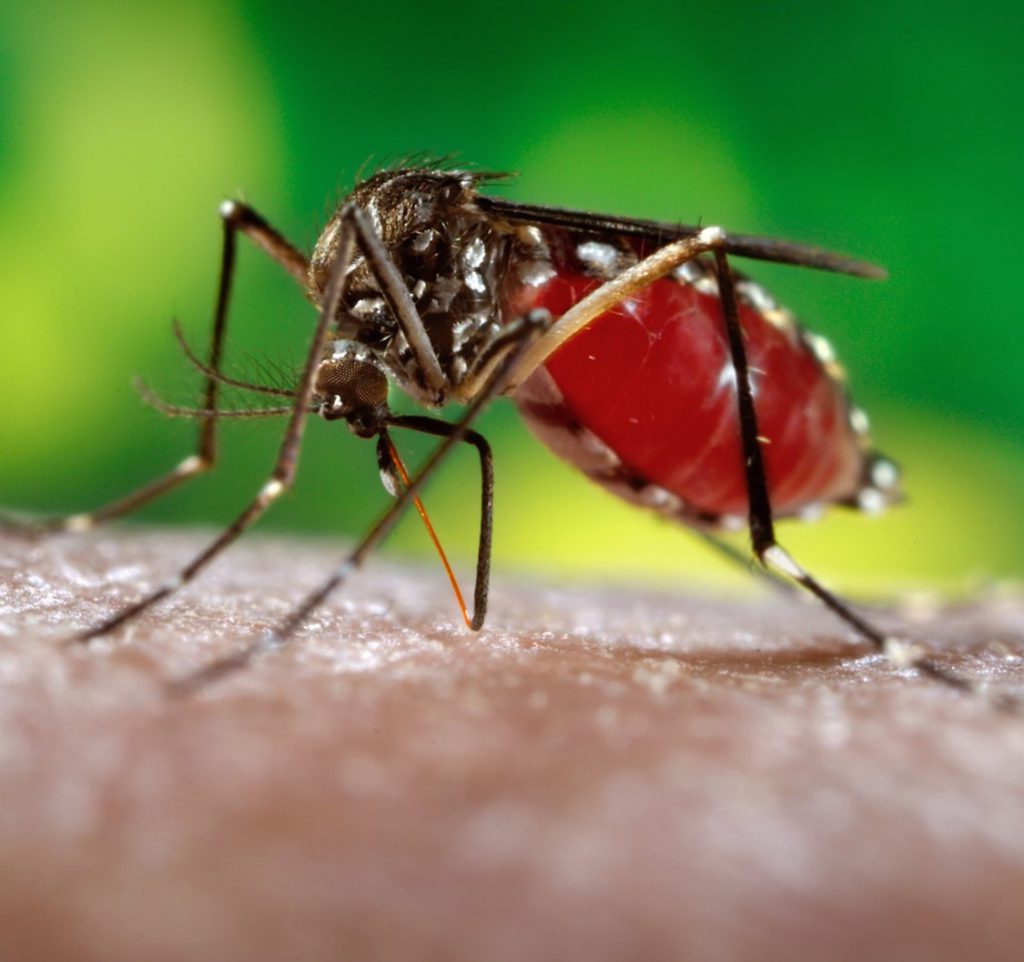
Are Mosquitoes Harmful to People?
Like many animals, humans are susceptible to many mosquito-borne diseases, including West Nile Virus, Eastern Equine Encephalitis, Malaria, Zika Virus, Dengue Fever, and Yellow Fever – to name a few. Mosquitoes are responsible for more than 1 million deaths each year, making them the deadliest animal in the world.
What Causes Mosquito Problems in Ponds
Fun fact: mosquitoes are picky about where they lay their eggs. It may seem like they will lay them anywhere, but this is not the case. Lakes and ponds are often not their preferred place to breed. When these bodies of water have mosquito eggs and larvae in them, it may be a sign of an underlying issue with the water quality.
Here are some issues that can cause mosquito problems in ponds:
1. Lack of Aeration
Mosquitoes prefer to lay their eggs in bodies of water that are stagnant or slow-moving. If a pond has no water features, pumps, or skimmers, mosquitoes will likely consider it the ideal place to lay their eggs. This goes for larger bodies of water with insufficient aeration if there are areas of water that are too far from the source of water movement.
2. Poor Water Quality
Excess nutrients, stagnant water, and substance imbalance can cause poor water quality and create conditions that allow mosquito larvae to thrive. Maintaining healthy water quality is not only good for the fish and wildlife in and around the water, but it also helps keep the mosquito population at bay. Regular water quality testing is a best practice that allows you to understand current conditions and intervene before a problem gets out of hand.
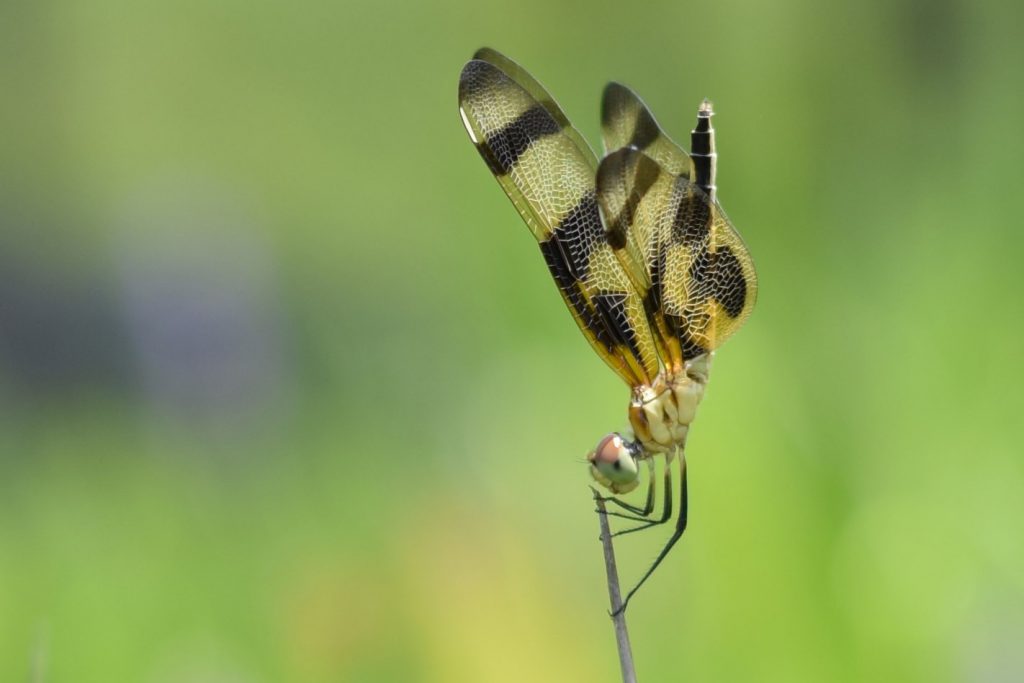
3. No Natural Predators
Another reason why the mosquito population may increase is the absence of natural predators that usually keep them under control. Birds, bats, frogs, and dragonflies are all mosquito hunters, but sometimes environmental changes can reduce their populations or cause them to move to another area.
How to Properly Control Mosquitoes in Florida
To help control mosquitoes around lakes and ponds, we suggest drastically reducing the environments they like to breed and live in. These preventive, proactive, and ecologically sustainable mosquito control methods can reduce the mosquitoes and keep fish, frogs, and other wildlife safe.
Improve Aeration and Water Flow
Although aeration and water flow don’t kill mosquitoes or their larvae, it can keep them from laying eggs in or around ponds or lakes. Water features such as fountains are some of the best aerators and also add to the appeal of the property. The water movement created by a fountain will help lower the chances of mosquitoes laying eggs because it is no longer a safe place for the eggs to develop. Submersed aerators can also help circulate the water column by pumping air at the bottom of the waterbody. As the bubbles rise to the surface, help create turbulence.
Plant Native Vegetation
When introduced around the perimeter of a lake or pond, beneficial native plants and vegetation can create a habitat that attracts mosquito predators to the area. Deep-rooted, flowering plants and native sedges and rushes are excellent choices with two-fold benefits. In addition to supporting mosquito control efforts, beneficial buffers also help filter sediment and undesirable nutrients before they can enter and pollute the waterbody during rainstorms.
Mosquitofish Stocking
There are many species of fish that feed on mosquito eggs and larvae. For instance, the Eastern Mosquitofish is a native Florida species and a relative of the guppy. They are tough, adaptable, and tolerant of many different water conditions. It is a small fish that lives on the surface of ponds and lakes and preys on mosquito larvae. In addition, the Eastern Mosquitofish has a high rate of reproduction that makes it an essential source of food for birds, larger fish, and other types of wildlife.
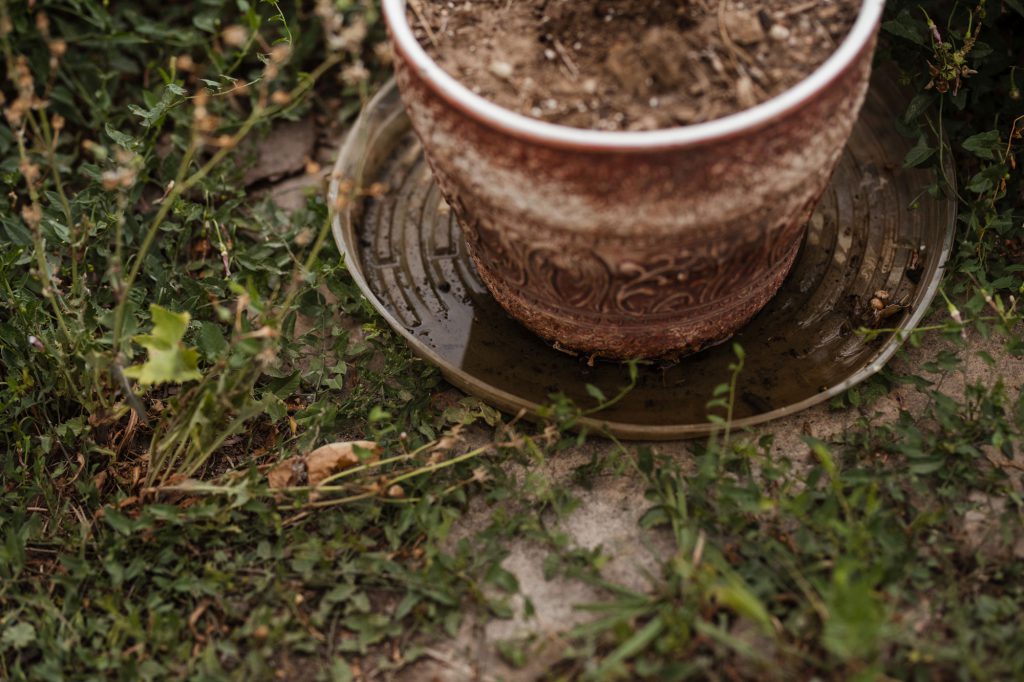
Identify Overlooked Habitats
Mosquitoes lay approximately 300 eggs during their 1-2 month lifespan. In addition to managing standing water in your lake or pond, it’s also crucial to clear gutters, properly dispose of garbage, and empty outdoor buckets, birdbaths, watering cans, and other containers or outdoor equipment that can hold rainwater. These practices may help limit mosquito breeding grounds in the surrounding area.
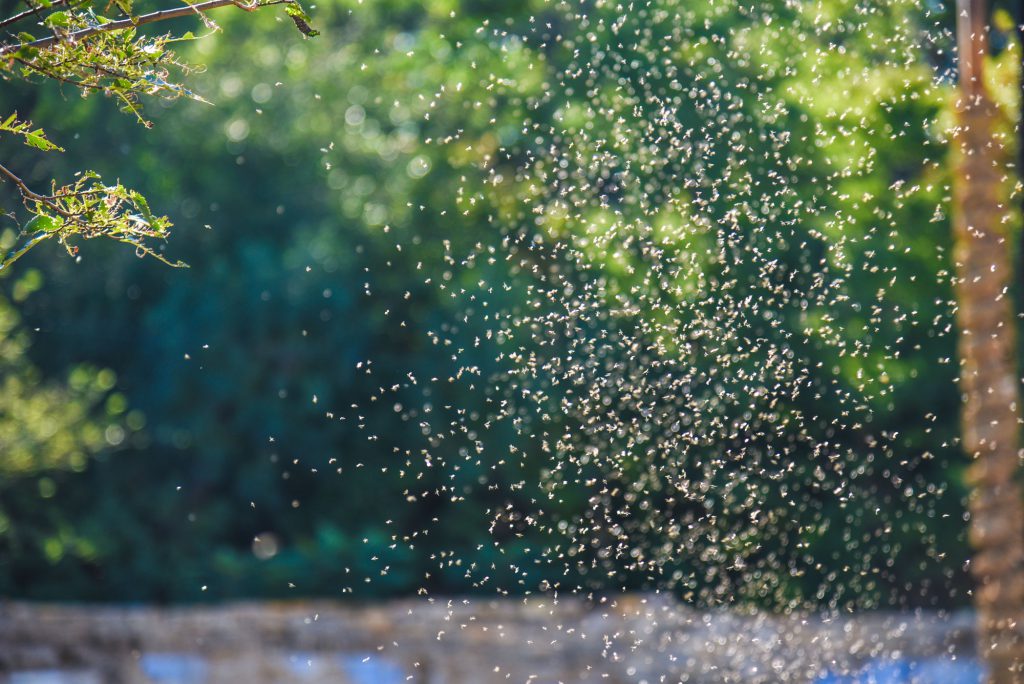
Install Bat Boxes
One bat can eat as many as 1,000 insects an hour, so imagine the number of mosquitoes a huge bat colony could consume. For instance, one colony in Florida has been calculated to get rid of 50 tons of insects a year, including more than 15 tons of mosquitoes. There are several bat species native to Florida that can easily be attracted by mounting bat boxes on outbuildings or poles in open areas.
Use Biological Larvicides
If the mosquito population around your lake or pond is out of control and the previous natural methods aren’t making any headway, there are EPA-registered biological larvicides that can be safely applied by licensed experts using backpack sprayers or professional drones.
In order to be effective, larvicides should be applied on a regular schedule, anywhere from weekly to monthly throughout the spring and summer via ground applications or aerial drone technology. This schedule helps combat new generations of mosquito larvae. These programs go hand in hand with SOLitude’s SOL Pro Plans, which monitor lakes and ponds year-round for lasting success.
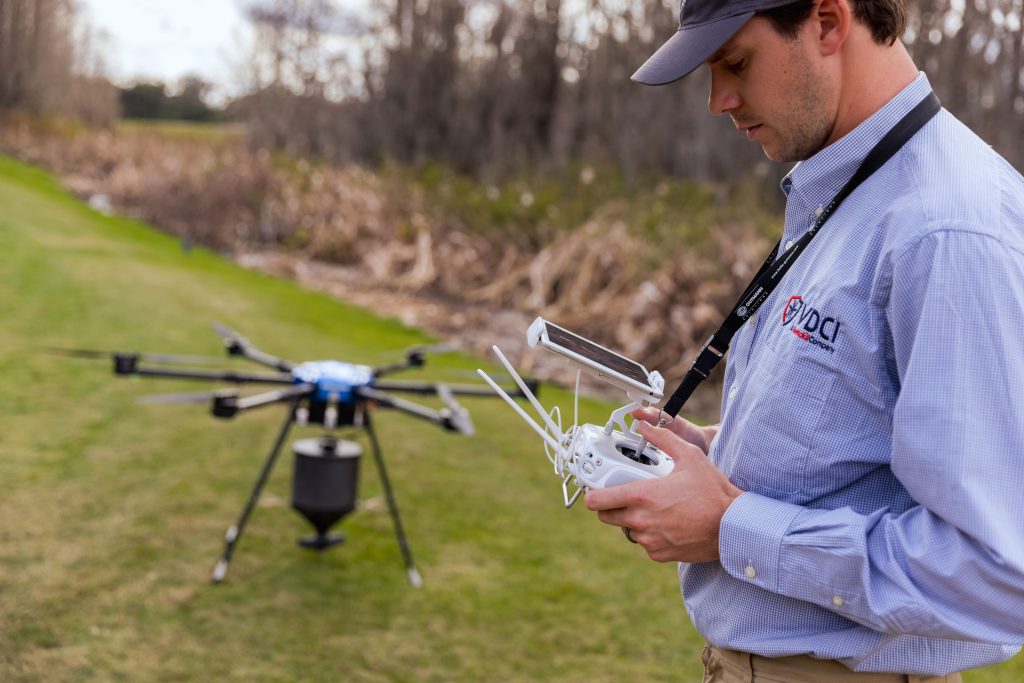
Integrated Mosquito Management Programs for Communities
SOLitude Lake Management is proud to partner with our sister company, Vector Disease Control International (VDCI), to provide mosquito and midge management programs for communities. VDCI’s Integrated Mosquito Management (IMM) programs take a proactive, holistic, and scientific approach to controlling mosquito populations in communities. Mosquitoes are not only pesky creatures, they can also carry vector-borne diseases such as West Nile Virus, Encephalitis, and Zika that can put your community at risk.
VDCI’s team of experts partner with our Aquatic Specialists to determine the best strategy to control nuisance and potentially disease-carrying mosquitoes on your property. Learn more about VDCI’s mosquito management experience and how our teams are joining together to help protect public health.
The Benefits of Fountains & Aeration
Contact Us to Manage Mosquitoes Around Your Property
Call us at 888-480-5253 or complete the form below to connect with an aquatic management expert.
SOLitude Lake Management is a nationwide environmental firm committed to providing sustainable solutions that improve water quality, enhance beauty and preserve natural resources.
SOLitude’s team of aquatic scientists specializes in the development and execution of customized lake, stormwater pond, wetland and fisheries management programs. Services include water quality testing and restoration, algae and aquatic weed control, installation and maintenance of fountains and aeration systems, shoreline erosion control, muck and sediment removal and invasive species management. SOLitude partners with homeowners associations, golf courses, private landowners, businesses and municipalities. SOLitude Lake Management is part of Rentokil, a leading business services company, operating across the United States, Canada and Puerto Rico.
For more information, visit SOLitude Lake Management at solitudelakemanagement.com, and connect on Facebook, LinkedIn and Twitter.

